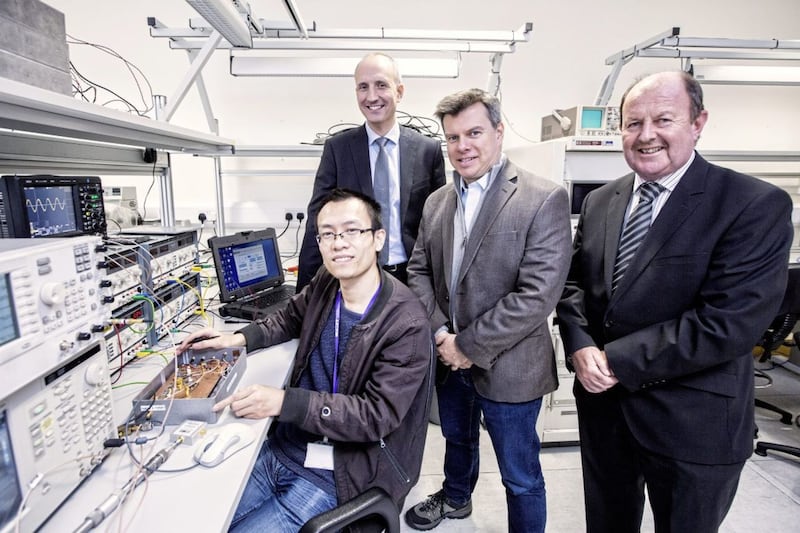THE north's knowledge economy is continuing to grow, though only at a modest rate, a new report shows.
For the fifth year running, Northern Ireland is the second fastest growing of the 12 UK regions in knowledge economies, which generate higher wages, high levels of skill and education and training, and which deliver economic growth driven by innovation.
But Catalyst Inc chief executive Steve Orr insists: "That's not good enough. We need to be the best. We must strive to be number one. And if we keep doing what we're doing, we won't get where we need to be."
The north's knowledge economy is made up of companies in pharmaceuticals & biotechnology, software, creative content, technology consulting, communications, medical devices, IT services, hi-tech financial services, aerospace & transportation, and computing & electronics.
The sector has set broad targets of adding £3.2 billion to the economy and create 80,000 jobs by 2030.
But the 2018 Knowledge Report said those targets will only be achieved "if we focus our efforts and our collective responsibility to take action now".
It said growth has been modest but consistent. Sectors that have performed well in previous years have largely continued to do so, while others have failed to ignite. Previous targets that were missed have not made up the gap: and more have since been added to the list.
It added: "Northern Ireland’s knowledge economy is not stagnating; nor, however, is it growing as fast as other regions."
Mr Orr, who succeeded Norman Apsley as Catalyst CEO last summer, said: "How do we make Northern Ireland the place to be, a beacon for world class talent and investment?
"We must make this a place that attracts word class researchers, engineers, entrepreneurial talent and investment at the same time as helping create opportunities that are accessible locally across a range of skills levels.
"We have seen government, academia and business successfully collaborating to bring in investment through the City Deals. Now is the time for our politicians to step up and ensure that whatever the final outcome of the UK exit from the EU, Northern Ireland is not disadvantaged. This includes an immigration policy that works for us alongside proper and sustainable funding of our universities."
Among the key findings in the 2018 report was that the north was the fourth fastest growing UK knowledge economy (KE) region last year, growing at 6.3 per cent compared to 1.7 per cent in the wider economy.
KE accounted for 5.9 per cent of the overall local economy and contributed 4.7 per cent of total employment. Its exports equate to 35 per cent of everything leaving Northern Ireland, with £4 of every £5 of sales being outside the EU.
But on the flip side, salary levels are reducing (the average wage in Northern Ireland is £21,000 but that jumps to £28,000 in KE) but is still a 42 per cent premium on the Northern Ireland average.
And the north’s long-standing productivity problem is evident even in the KE sector.
The continuing productivity premium (30 per cent) within the knowledge economy compared with other sectors in the local economy is helping to reduce the historic gap with the UK as a whole.
But when viewed against the rest of the regions, productivity is the lowest in the UK, which the report says "presents a genuine concern".
Another worry is that venture capital and private equity investment values are relatively low, although activity remains buoyant. Indeed the value of VC i the north, at £16m, is a mere 50th of that in the Republic (£900m), and Steve Orr said: "Even allowing for per capita, something is terribly wrong here."
He added: "What can we learn from our neighbours? Alan Foreman, chief executive of B-Secur, based at Catalyst, has a vision to be the first tech unicorn (privately held start-up company valued at over $1bn) in Northern Ireland – but that is the ambition and belief we all need to have.”







